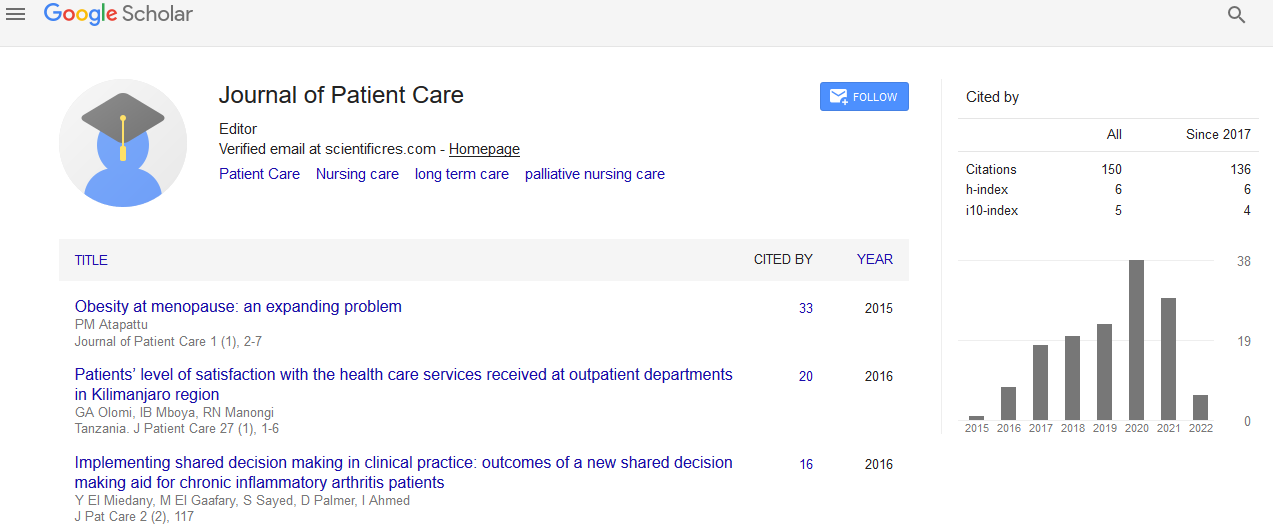Indexed In
- RefSeek
- Hamdard University
- EBSCO A-Z
- Publons
- Geneva Foundation for Medical Education and Research
- Euro Pub
- Google Scholar
Useful Links
Share This Page
Journal Flyer

Open Access Journals
- Agri and Aquaculture
- Biochemistry
- Bioinformatics & Systems Biology
- Business & Management
- Chemistry
- Clinical Sciences
- Engineering
- Food & Nutrition
- General Science
- Genetics & Molecular Biology
- Immunology & Microbiology
- Medical Sciences
- Neuroscience & Psychology
- Nursing & Health Care
- Pharmaceutical Sciences
Impact of TB Elimination on HIV/AIDS in South Sudan
World Congress on Patient Safety & Quality Healthcare
September 07-09, 2017 London, UK
Ge Hong Harbin and John Yata Raymond
Harbin Institute of Technology, China
Posters & Accepted Abstracts: J Pat Care
Abstract:
The Tuberculosis disease has been researched intensively and tremendously by many countries�?? researchers. The impact of TB Elimination on HIV/AIDS remain a great deal of challenge since TB is air bone disease, the minimizing the risks and causing factors that lead to successful control program of death related tuberculosis cases need to be emphasized as the priority. The methodology includes the approaches to different age groups both medical staffs, patients and some knowledgeable persons in the field. Since the research work is both quantitative and qualitative research method, other methods of information generating to meet objectives of the project includes surfing internet, the variables will be obtained through careful inspection, scrutinizes of related Literature review, well designed Form for data collection, designed Model for TB elimination policy and Biographical Information in order to obtain accurate data to facilitate easy analysis and transform these banks of data into useful information for decision making. The particular method of implementation was the statistical tools of Social Science that is SPSS 23 software that we used Logistic Regression Analysis to predict the event, Pearson Correlation to compare the relationship between TB and HIV/AIDS, ANOVA and Descriptive statistics to summarize the project. Therefore, in this project�??s recommendations if is noted well and embraced, it would address the TB elimination in the population. This research is design towards Tuberculosis elimination which look into effective case detection among symptomatic individuals together with active case finding in special groups, standard treatment of disease and infection, access to tuberculosis diagnostic and treatment services, prevention, treatment outcome monitoring or surveillance are prerequisites to implementing the policy package recommended in this research project. Finally, the thesis highlights the limitations of the impact of TB elimination on HIV/AIDS and deliberates some future directions.

